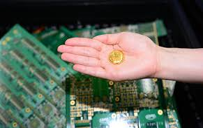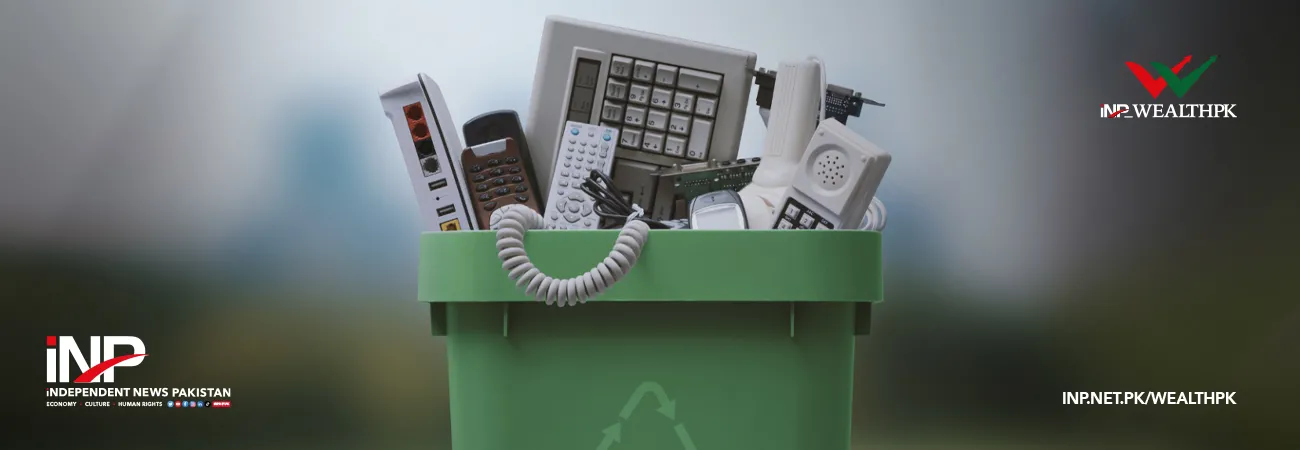INP-WealthPk
Faiza Tehseen
Pakistan is in urgent need of urban mining to address its growing electronic waste (e-waste) crisis and recover valuable critical raw materials.

"Urban mining involves extracting valuable metals like gold, silver, copper, and rare earth elements from discarded electronics. It offers viable solutions to reducing environmental pollution, creates economic opportunities and supports the transition to a circular economy,” explained Abdul Bashir, chief geologist at Koh-e-Daleel Mining Company Private Limited, a Balochistan-based firm.
Talking to WealthPK, he said: “The increasing use of smartphones, appliances, and IT equipment is adding to the existing piles of e-waste. Most of it ends up in landfills or is informally dismantled in unsafe conditions. Despite the generation of more than 500,000 metric tons of e-waste per annum, no formal system to sustainably manage or recycle it is established at the national level.”
He said: “Instead of treating e-waste trash, it must be recognised as an urban resource mine. Without formal material recovery system, Pakistan loses a good quantity of strategic materials and forfeits millions in recyclable and exportable metals.”
Bashir said: “Non-systematic wastage or processing of these materials leads to the risks to public health and the environment, loss of valuable critical raw materials, and toxic pollution, including lead, mercury, cadmium, and brominated flame retardants.”
He said e-waste workers should be offered technical training, and safety gear, as informal dismantlers, often working without protective gear, are exposed to toxic chemicals such as lead, mercury, and cadmium.
“Extended producer responsibility is necessary to be put in place to mandate producers and importers to take back end-of-life products/electronics. Producers and importers must label their products for easier disassembly,” Bashir said.
The geologist said that with proper systems, the waste stream can be transformed into a source of green jobs, raw materials, and environmental resilience. “There is a great potential of e-waste valorisation under Pakistan’s green indudtry transition roadmap. The absence of a national policy, a formal collection system and clean recycling technologies hinders scalable solutions.”
“Investment in urban mining infrastructure and innovation must be supported through the development of material recovery facilities that use eco-friendly technologies. To drive innovation in e-waste processing, it’s also crucial to support local research and development through funding and stronger industry-academia collaboration.
Investors can be attracted toward this sector by offering tax breaks and incentives for installing processing units,” Bashir said. “E-waste is continuously piling up across urban centres, and the urgency to act is growing. Urban mining is not only a technical fix but also an economic and environmental imperative,” stressed Mumtaz Hussain, a chemist.
Speaking to WealthPK, he said a national e-waste management and urban mining policy is crucial. “Pakistan is missing out on millions of dollars due to the lack of formal recycling infrastructure to recover precious critical meterials.”
Mumtaz emphasised the need for launching national-level campaigns to educate citizens on e-waste hazards, drop-off points and recycling benefits. “Public-private partnerships are necessary to promote sustainable urban mining practices.”
Credit: INP-WealthPk









